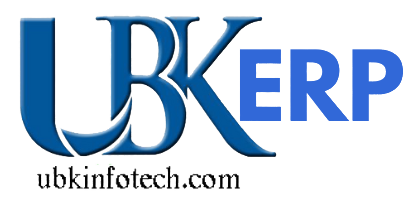Benefits of Learning Management Software for Schools and Colleges
A Learning Management System is a software platform used to create, distribute, and manage educational content. It serves as a central hub where learners can access lessons, assignments, and exams, while instructors can monitor progress, provide feedback, and manage course materials.
LMS software supports various learning styles, including blended learning, self-paced courses, live virtual sessions, and mobile learning. It's used by educational institutions, corporations, training centers, and government agencies alike.
Types of LMS Platforms
Choosing the right LMS depends on your institution’s size, goals, and resources. Here are the major types:
- Cloud-Based LMS: Hosted online and accessible from anywhere. Ideal for scalability and easy maintenance.
- Self-Hosted LMS: Installed on your own servers. Offers greater control but requires technical expertise.
- Open-Source LMS: Free platforms like Moodle. Flexible and customizable, but often complex to manage.
- Corporate vs Academic LMS: Corporate LMS platforms focus on compliance, onboarding, and productivity training, while academic LMSs cater to curriculum delivery, grading, and student engagement.
Core Features of an Effective LMS Software
An LMS is more than just a repository of e-learning materials. A robust learning management software should include:
- User Management: Create roles for admins, instructors, and learners.
- Course Management: Upload content in formats like video, PDF, SCORM, and quizzes.
- Communication Tools: Forums, email notifications, chat features to boost interaction.
- Assessment Tools: Create quizzes, timed exams, and surveys.
- Analytics & Reporting: Track learner progress, course completion rates, and performance metrics.
- Mobile Access: Mobile-friendly interfaces or dedicated apps for learning on the go.
- Third-party Integrations: Link with CRM, ERP, Zoom, Google Classroom, and other platforms.
Advanced LMS Integration: Exam Management System
An often-overlooked but crucial component of LMS platforms is the exam management system.
By integrating exam features, LMS software enables:
- Online test creation with automatic grading
- Timed exams with anti-cheating measures
- Secure remote proctoring
- Instant feedback and scorecards
- Seamless syncing of grades with the student database
This makes assessments more efficient, transparent, and stress-free for both learners and educators.
Benefits of Implementing a Learning Management System
Adopting a comprehensive LMS software like the one offered by UBK ERP brings several benefits:
- Centralized Learning: All course content and records in one place.
- Time & Cost Savings: Reduced paper usage, manual grading, and administrative tasks.
- Flexible Learning Paths: Students can learn at their own pace and revisit materials anytime.
- Personalized Learning: Track learner progress and tailor experiences based on performance.
- Scalable Delivery: Train thousands of learners across different locations at once.
- Regulatory Compliance: Track certifications, training hours, and learning compliance easily.
How to Choose the Right LMS for Your Institution
Selecting the best learning management software involves evaluating:
- Institution Goals: Are you focused on formal education, corporate training, or certifications?
- Ease of Use: User-friendly dashboards for both admins and learners.
- Customization Options: Can it be branded or adapted to your workflow?
- Support & Maintenance: Access to technical support and regular updates.
- Data Security: Ensure compliance with data privacy regulations like GDPR and FERPA.
- Integration: Ability to sync with student databases, payment systems, or ERP modules.
Conclusion:
Incorporating a Learning Management System into your institution is no longer optional—it’s essential. From streamlining course delivery and managing exams to improving learner engagement, an LMS offers countless advantages.
UBK ERP’s LMS software is designed to help institutions modernize their learning ecosystem while ensuring efficiency, compliance, and growth.



 By UBK-Infotech
By UBK-Infotech